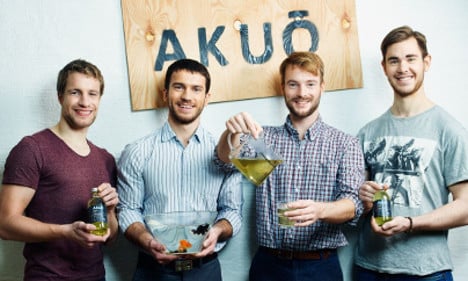
Akuo is currently sold in Stockholm and Malmö. Photo: Akuo
Three years ago, four international students in Stockholm invented a drink to improve concentration. Italian-born Lukas Von Grebmer explains how they went on to co-found a company that's proved to be thirsty work, but highly rewarding.

